

Inclusive Learning for Older People Workshop
On Wednesday 27th January 2016, Dr Emma Murphy (HERC, DCU) in collaboration Dr Trudy Corrigan (ILP, DCU), Dr Cathy Fowley (ILP, DCU) and Carmel Conroy (ILP, DCU) held a workshop on inclusive learning for older adults. There were approximately 45 invited participants attending the event made up of key stakeholders including older and younger students, policy community, academics and NGOs in the ageing, education and inclusion sectors. The workshop was funded by the Irish Research Council.
This inclusive learning guideline project is part of an ongoing collaboration between the iTELL project and the Intergenerational Learning Programme (ILP) at DCU. We would like to advocate that similar holistic programmes which benefit both older and younger people in higher education can be transferrable to other higher education institutes. Through reflexive practice and empirical explorations as tutors and researchers in ILP we have tried to formalise what makes the programme inclusive for older students. Based on our experiences, we have drafted guidelines for creating an inclusive learning environment for older students in a higher education setting.
Professor Maria Slowey, Director of HERC, gave an opening address highlighting the importance of this work within the context of lifelong learning and the positive associations between learning in later life and health and wellbeing. Dr Emma Murphy gave an overview of her current IRC funded iTELL (inclusive technology to enhance lifelong learning) project exploring ways that interaction design and Universal Design for Learning (UDL) can enhance learning for older students. Following introductions and an overview of the ILP by Dr Trudy Corrigan four ILP students spoke of their experiences of the ILP as an inclusive learning programme at DCU; Catherine Clancy, Shay Scanlon, Bridie Crowley and Joe Brennan
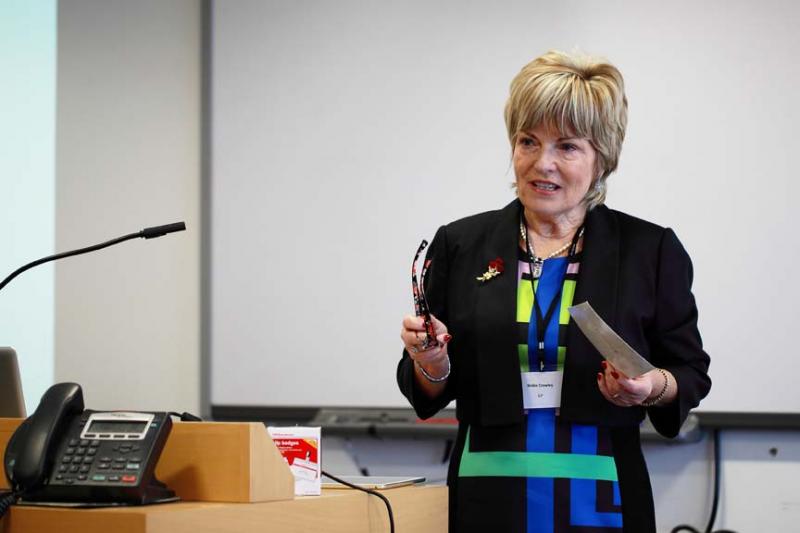 |
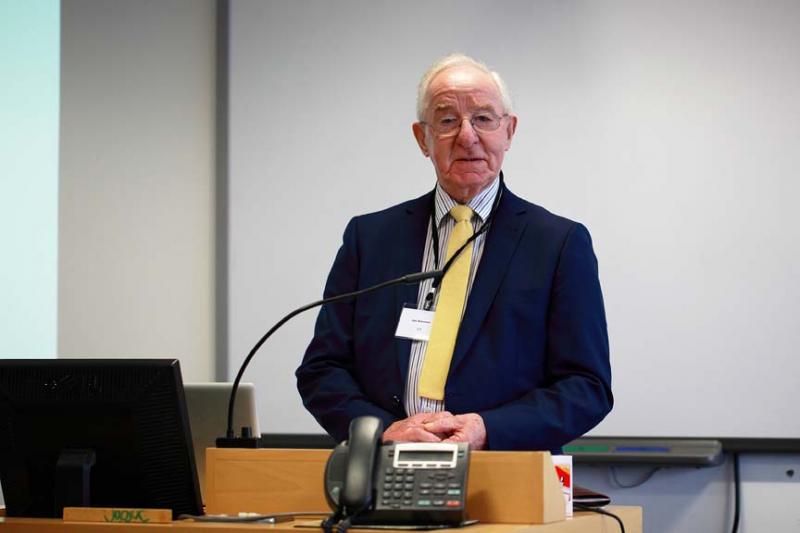 |
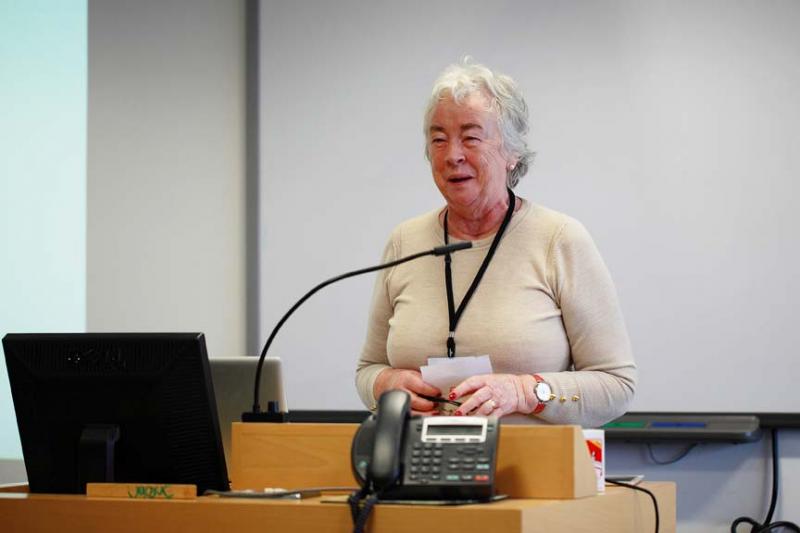 |
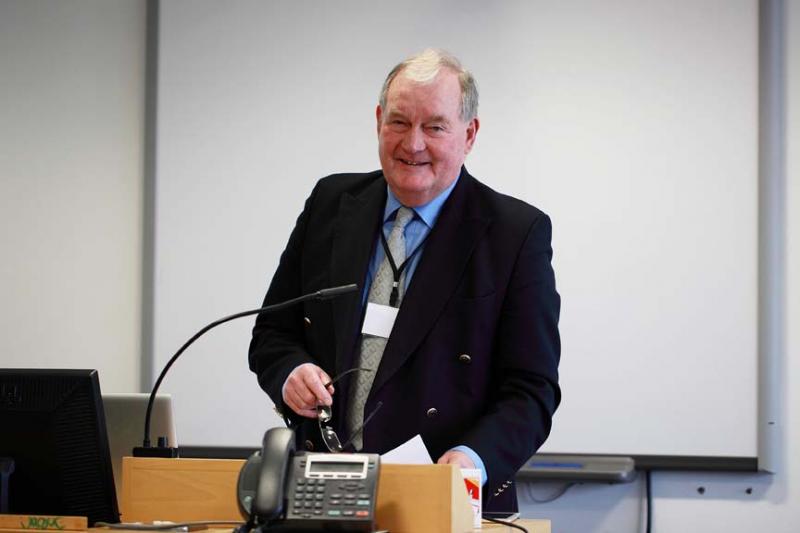 |
Following our speakers Christina Whyte of the National Chamber Choir led an interactive, physical and vocal warm up exercise before we broke up into small groups for the main workshop.
The aim of the workshop was to provide a forum where a diversity of voices could be heard to explore the main themes that arose when we created our inclusive learning guidelines. Using the World Café workshop method, we explored and discussed what an inclusive learning environment means for older students under the following themes:
Welcome, facilitated by Carmel Conroy and Professor Maria Slowey
This theme related to our guidelines for inclusive registration practices from practical details to personal information. This ranges from evaluating differing modes of registration for older or younger students and if there was information that they would or would not like to share as an older student. Participants felt that there is a delicate balance between asking for personal information to enable more supports for students and being intrusive or patronising to older students.
Technology, facilitated by Dr Emma Murphy and Dr Esther Murphy (HERC and AHEAD)
The technology and learning discussion elicited very strong opinions on how technology can both help and hinder learning for older students. Technology has great potential to enhance the accessibility of learning materials and methods for older adults who may have age related sensory, physical or cognitive impairments. However we must acknowledge that technology can create barriers for older students and so we discussed how technology can be both “friend” or “foe” depending on how it is used in a learning environment.
Learning, facilitated by Dr Trudy Corrigan and Dr Cathy Fowley
In our guidelines we have explored pedagogy such as prior learning, peer learning and other learning strategies for older adults including intergenerational approaches. This also includes differing forms of accreditation such as reflective diaries, use of video and introduction of digital badges. We discussed how particular learning methods could be challenging or rewarding for older students.
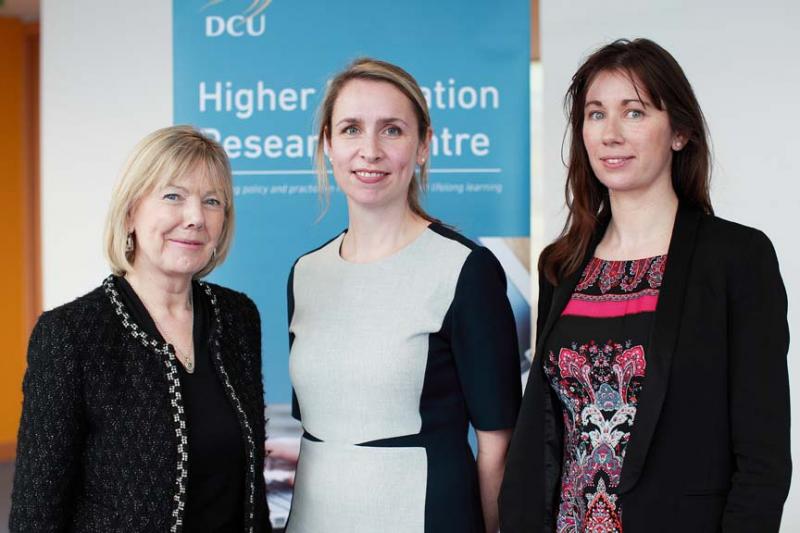 |
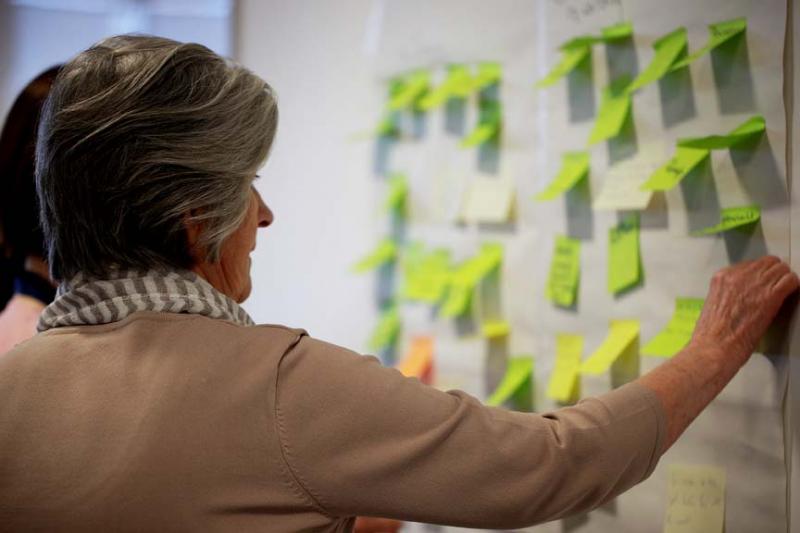 |
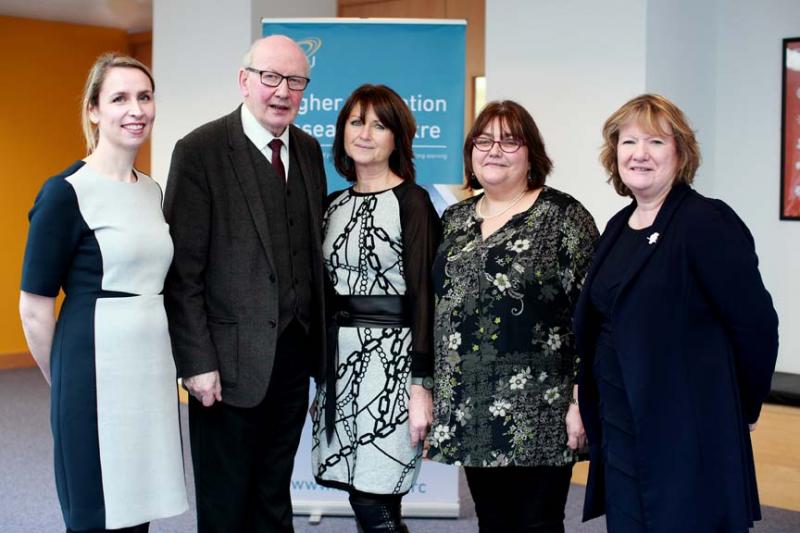 |
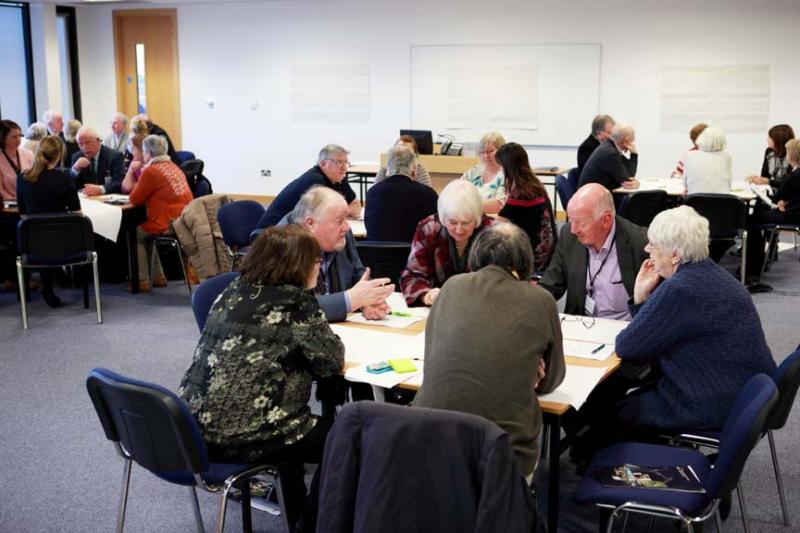 |
Mark Morgan gave a closing speech at the end of the workshop highlighting the importance of acknowledging the gains and positive attributes of ageing. What older people may loose in terms of age related impairments is compensated in terms of the acquisition of cognitive stimulation and development of resilience and coping skills. Citing a recent TCD study (Robertson et al., 2015), Professor Morgan also spoke about the importance of older people believing in ageing as a positive time in their life. The opposite of this is that negative stereotyping of aging by older people and society can in fact cause cognitive decline. It is so important for higher education to recognise and value the role of older people.
Trevor Holmes, DCU Vice President for External and Strategic Affairs, also highlighted the importance of inclusion of older people in higher education within the wider context and recent activities of the Age Friendly University Initiative at DCU.
Following this consultation event we will revise our guidelines based on feedback from the workshop. This will form an evolving framework of inclusive learning for older adults on campus.

